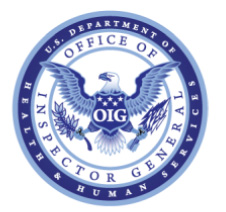 The Office of Inspector General (OIG) has announced a $180,000 fine against a Georgia hospital for two common violations — 1) using a “rapid medical screening” that short-cuts EMTALA requirements and then asking for money upfront and 2) substituting the receiving physician’s opinion for the transferring physician’s opinion and denying a transfer.
The Office of Inspector General (OIG) has announced a $180,000 fine against a Georgia hospital for two common violations — 1) using a “rapid medical screening” that short-cuts EMTALA requirements and then asking for money upfront and 2) substituting the receiving physician’s opinion for the transferring physician’s opinion and denying a transfer.
Put simply, the MSE is not a quick verbal and physical once-over without running common imaging and lab testing to allow the hospital to then turn-away self-pays who don’t have the cash to pay an upfront fee. Many hospitals use this approach, however, to decide that the patient does not have an emergency medical condition to avoid giving EMTALA care. This carries a high risk of an EMTALA violation as demonstrated in case 1.
The second case points out an aspect of EMTALA many receiving hospitals don’t seem to appreciate — EMTALA puts the legal decision authority of whether a patient needs transfer and the mode of transfer in the hands of the transferring physician. The receiving physician can make suggestions, but in the end, the sending physician decides, not the receiving physician. The receiving physician or hospital that turns down a transfer for a patient with a condition that they are capable of handling is typically in violation of EMTALA.
The OIG summary report is below:
On September 27, 2019, Doctors Hospital of Augusta (DHA), Augusta, Georgia, entered into a $180,000 settlement agreement with OIG. The settlement agreement resolves allegations that, based on OIG’s investigation, DHA violated the Emergency Medical Treatment and Labor Act (EMTALA) when it failed to provide an adequate medical screening examination and stabilizing treatment for a patient and failed to accept an appropriate transfer of a second patient. The first patient was a 25-year old female who presented to DHA’s Emergency Department (ED) complaining of ingestion of an unknown substance and a loss of consciousness. The patient was reportedly tearful and anxious, and complained of a headache, neck pain, face pain, and left shoulder pain. A nurse triaged the patient and gave her an Emergency Severity Index score of three, which was “urgent” according to DHA’s triage policy. A physician medically screened the patient; however, the screen did not include necessary laboratory tests related to the patient’s presenting symptoms. The patient was entered into DHA’s medical screening exam process for non-emergent patients and was asked for funds in order to continue evaluation. The patient was unable to pay, so she was discharged. The patient immediately sought treatment at another hospital, where she was treated.
The second patient was an 84-year-old female with pneumonia, and severe hypernatremia and hyperglycemia. The patient needed Intensive Care United (sic?) (ICU) level care and the transferring hospital did not have an ICU. A physician at DHA refused to accept the transfer of the patient, stating that the referring facility could manage the patient. DHA had the capability and the capacity to care for the patient. Associate Counsel Candace Ashford represented OIG.